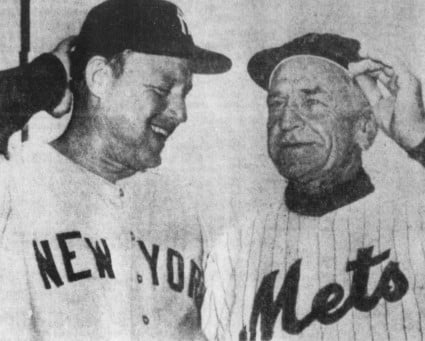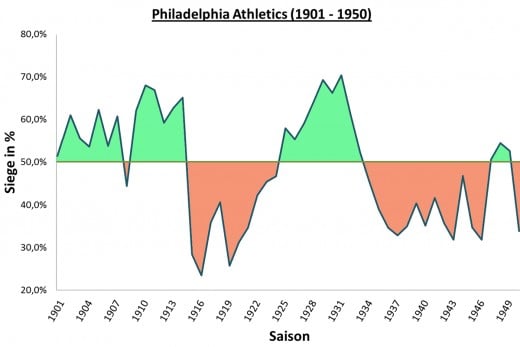- HubPages»
- Sports and Recreation»
- Team Sports»
- Baseball
Dubious Distinction: Orioles on the Road to Record for Losses in Consecutive Seasons

Sometimes the chance to break a record brings a sense of excitement. And sometimes, not so much.
The Baltimore Orioles find themselves in the latter category when it comes to their potential to break the record for most losses in consecutive years.
Last season, Baltimore dropped 115 games, tied for the fourth-most in a single season. Heading into the All Star break they already have 62 losses and are on a pace to lose 113 this year. That would give them a two-season loss total of 228 games.
100 Losses Not Particularly Rare
The record for most losses in consecutive seasons is 231, set by the hapless New York Mets in their first two years of existence. They lost an all-time record 120 losses in 1962 and dropped another 111 in 1963. The Orioles’ current pace would give them the second-highest two-year total.
In the course of 118 Major League seasons, starting with the modern era in 1901, there have been 144 teams that have lost 100 games. It’s hardly a unique thing. But only 17 teams have reached 110 or more losses in one year.
Teams with 110+ Losses in a Season
Year
| Team
| Losses
|
|---|---|---|
1962
| Mets
| 120
|
2003
| Tigers
| 119
|
1916
| A's
| 117
|
1935
| Braves
| 115
|
2018
| Orioles
| 115
|
1904
| Senators
| 113
|
1952
| Pirates
| 112
|
1965
| Mets
| 112
|
1932
| Red Sox
| 111
|
1939
| Browns
| 111
|
1941
| Phillies
| 111
|
1963
| Mets
| 111
|
2004
| Diamondbacks
| 111
|
2013
| Astros
| 111
|
1909
| Senators
| 110
|
1969
| Padres
| 110
|
1969
| Expos
| 110
|
The Schizophrenic A's
Although the Mets hold the record for most losses, they didn’t actually have the worst season. The Mets accomplished their feat in 162 games. In 1916, the Philadelphia Athletics lost 117 games in a 154-game season. It’s safe to assume that had they played eight more games, they would have surpassed the 120-loss mark. Their winning percentage was .235, slightly worse than the Mets’ .250 mark.
The Detroit Tigers came close to duplicating or surpassing the Mets in 2003 when they lost 119 times. Only by winning five of their final six games did they avoid the ignominy of being worse than the Mets.
Of the teams losing 110 or more times, the Mets appear on the list three times – 120 in 1962, 112 in 1965 and 111 in 1963. All told, the Mets have had six 100-loss seasons. But they’re not even close to the record holder.
That dubious distinction belongs to the A’s with 16. The A’s have been the most schizophrenic team in history: They can be counted among both the best teams and among the worst teams. They won 100-plus games 10 times, have 15 AL pennants and nine World Championships to go along with their record for most 100-loss seasons.

Seasons of Futility
Nearly matching them in futility are the Phillies, with 14 100-loss seasons, although they have no corresponding record of success like the A’s.
The A’s played in Philadelphia from 1901 through 1954. During those years, Philadelphia teams lost 100 or more games 24 times. Twice the A’s and Phillies both lost 100 games in the same year, 1921 and 1940.
The only other teams to come close to those two teams are the Braves, who lost 100 or more games 13 times, in Boston and Atlanta but never in Milwaukee, and the Orioles. When combined with their predecessors, the St. Louis Browns, the 2018 season was the franchise’s 11th such season.
100 Losses Rare for a Few Teams
On the flip side, two teams have never lost 100 games: The Angels and the Rockies. Granted, neither team has the long history of the others, but it’s still impressive. The Rockies started in 1993 and have lost as many as 98 games. The Angels began in 1961 and have lost 95 games twice.
The Diamondbacks, Reds and Giants each only suffered through one season of 100-plus losses. The Yankees and Cardinals each have two 100-loss seasons, but neither of them has lost that many in more than a century. The last Yankee team to lose 100 was in 1912; the last Cardinals team to do so was in 1908.
Reasons for 100 Losses Vary
Understandably, some of the triple-digit losing seasons are by expansion teams – the Padres and Expos both lost 110 in their inaugural season on 1969, the Blue Jays dropped 107 in their first season and, of course, there were those 1962 Mets.
Other 100-loss seasons are the bottoming out of a team on a downward trend before rallying. The Astros lost 106, 107 and 111 games in 2011-13 before becoming one of the AL’s best teams.
Some of those horrible seasons belie the success to come. The Red Sox lost 100 times in 1965, two years before going to the World Series. The Cubs lost 101 in 2012 then became World Champions four years later.
Some seem like anomalies. In 1989 the Tigers lost 103 games after losing only 74 the year before and just 83 the following year. In 1996 they had another crazy year like that, losing 109 after 84 losses the previous season and 83 the following year.
But in other cases, especially in regard to the Phillies, A’s, Braves and the Browns/Orioles, years of failure by management produced those hapless teams. The A’s were such a schizophrenic team in part because after several successful seasons, management would trade or sell most of their good players.
Bad Following Bad
Only three teams have suffered through four consecutive 100-loss seasons: the 1909-12 Braves, who lost 108, 100, 107 and 101 times; the 1939-42 Phillies, 106, 103, 111, 109; and the 1962-65 Mets, 120, 111, 109, 112.
Eight other teams have lost 100 in three straight seasons: the 1910-12 Browns, who lost 107, 107 and 101 times; the 1919-21 A’s, 104, 106, 100; the 1922-24 Braves, 100, 100, 100; the 1925-27 Red Sox, 105, 107, 103; the 1952-54 Pirates, 112, 104, 101; the 1977-79 Blue Jays, 107, 102, 109; the 2004-06 Royals, 104, 106, 100; and the 2011-13 Astros, 106, 107, 111.
Record Losses for Consecutive Seasons
So losing 200 games in consecutive seasons is hardly unusual. But when you reach 210 losses in consecutive years, it becomes a bit rarer. That’s happened just 20 times. As mentioned earlier, the 1962-63 Mets hold the record of 231. Second place belongs to the 1915-16 A’s, who lost 226 times. The 2002-03 Tigers dropped 225 games. The ‘64-65 Mets fell 221 times, and the ‘63-64 Mets and ’41-42 Phillies each 220 times.
Teams Losing 210+ Games in Consecutive Years
Year
| Team
| Losses
| Losses
| 2-Year Total
|
|---|---|---|---|---|
1962-63
| Mets
| 120
| 111
| 231
|
1915-16
| A's
| 109
| 117
| 226
|
2002-03
| Tigers
| 106
| 119
| 225
|
1964-65
| Mets
| 109
| 112
| 221
|
1941-42
| Phillies
| 111
| 109
| 220
|
1963-64
| Mets
| 111
| 109
| 220
|
2012-13
| Astros
| 107
| 111
| 218
|
1952-53
| Pirates
| 112
| 104
| 216
|
1916-17
| A's
| 117
| 98
| 215
|
1940-41
| Phillies
| 103
| 111
| 214
|
1910-11
| Browns
| 107
| 107
| 214
|
2011-12
| Astros
| 106
| 107
| 213
|
1927-28
| Phillies
| 103
| 109
| 212
|
1925-26
| Red Sox
| 105
| 107
| 212
|
1978-79
| Blue Jays
| 102
| 109
| 211
|
1938-39
| Phillies
| 105
| 106
| 211
|
1919-20
| A's
| 104
| 106
| 210
|
2004-05
| Royals
| 104
| 106
| 210
|
1926-27
| Red Sox
| 107
| 103
| 210
|

Orioles Could Approach the 2-Year Record
Obviously, then, the 2018-19 Orioles could join some pretty rare company. If they lose just 105 games this season – almost a sure bet unless they have a great second half – they’ll be one of just seven teams to lose 220. If they lose 110, they’ll be tied for the third-highest total. If they stay on their 113-loss pace they’ll move into second. And should the year turn really sour and they lose 117, they’ll have lost 232 games in the span of two years.
It’ll be a record – but certainly not one they’ll want to boast about.








